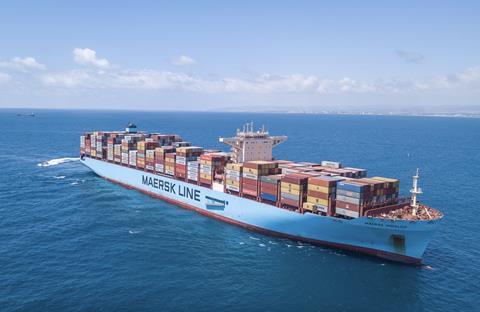Shipping giant raises full-year container market growth forecast as demand remains resilient outside North America, though Red Sea disruption expected to continue throughout 2024

AP Moller-Maersk has said it achieved “strong results” in the second quarter of the year (Q2), with revenue growth of 2.8 per cent to US$13.13bn.
EBIT for the quarter reached US$845mn, down from US$963mn in the same period of 2024, while EBITDA grew to US$2.298bn from US$2.144bn.
Maersk said that, while down sequentially, its results were in line with the previous year despite ”significant geopolitical uncertainty and continued rate pressure”.
Performance was driven by continued strong results in Terminals, volume growth in Ocean and increased profitability in Logistics & Services and further supported by continued operational improvements and ongoing cost discipline in all business segments, it said.
Given the more resilient market demand outside of North America, Maersk said it was raising its full-year 2025 financial guidance for global container market volume growth to between 2 per cent and 4 per cent, up from -1 per cent and 4 per cent.
The company also noted that disruption in the Red Sea is expected to last for the full year.
”We have had a strong first half of the year, driven by consistent follow through on our operational improvement plans and the successful launch of the Gemini Cooperation,” said Vincent Clerc, CEO of Maersk.
”Our new East-West network is raising the bar on reliability and setting new industry standards,” he continued. ”It has been a key driver of increased volumes and solid delivery of our Ocean business.
”Even with market volatility and historical uncertainty in global trade, demand remained resilient, and we’ve continued to respond with speed and flexibility.
”As our customers navigate these complex challenges, we remain committed to helping them build stronger and more adaptable supply chains – making sure they are ready to not just weather disruption, but to grow through it,” Clerc added.



